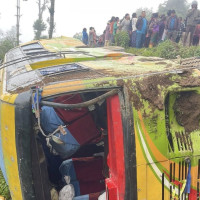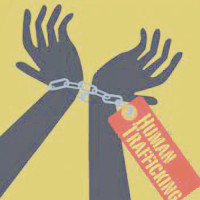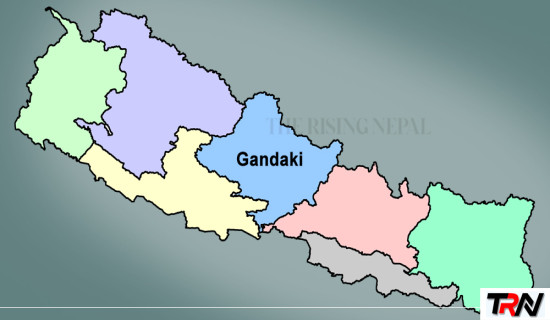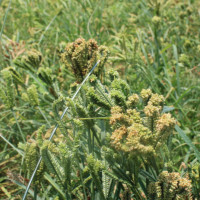- Saturday, 2 August 2025
Dhimal youths losing taste for traditional Jatri dishes
By Hari Prasad Koirala,Urlabari, May 2: Jatri used to be a festival associated with love in the Dhimal community of Jhapa. Young men and women used the fair organised for the festival as an occasion to meet their prospective life partners and express their love by offering them Paan, betel nuts and dates.
However, with the change in times, the way of celebrating Jatri has also changed.
For starters, lovers no longer gift each other traditional dishes like Chichiri (Sticky Rice), Gendro (made from the soft flour of sticky rice), Bagiya (made from rice flour) and Chudur (snail). Instead, they go out to restaurants to eat Momo, Chow Mein, Pizza or cakes and sweets. This has put the livelihoods of women who make such items at risk.
Punam Dhimal, who came to this year's Jatri fair at Jhurmaha, Urlabari Municipality–5, Morang, from Damak Municipality–3, Jhapa, to sell Chichiri worried, "I used 10 kilograms of rice to make Chichiri for the festival. But I have not been able to sell it." She added, "The youths do not seem to be interested in our traditional dishes."
Jatri is the main festival of the minority Dhimal community living in Jhapa, Morang and Sunsari districts. It begins every year on the second day of Baisakh after offering worship at the sacred Rajarani Maharajsthan in Letang Municipality–1. The Maharajsthan is believed to be the place the Dhimal ethnic group originated from.
Dhimals, who are nature worshippers, go to the Maharajsthan in groups and pray for good health, safety from wild animals and adequate rain during the rainy season in a ceremony called Sirjat. They also sacrifice ducks, chickens and pigs.
During the festival, the Dhimals worship seven mother goddesses known as Aamai. They are Sali Amai, worshipped for freedom from diseases; Jala (Parvati) Aamai, worshipped for freedom from natural calamities like floods and landslides; Laxmi Aamai, worshipped for wealth, prosperity, good harvest and freedom from famine; Saraswoti Aamai, worshipped for knowledge and wisdom; Tukuni Aamai, worshipped to ensure that there is no shortage of agricultural equipment and also threads and fabrics to weave clothes; Dingding Aamai, worshipped for the health and safety of small children and Dhale Aamai; worshipped to ensure that the Dhimals are able to make enough clothes and grow enough food for all.
Additionally, they also worship four Majhi gods. They are Dhudha Thakur, Yau Majhi, Sau Majhi and Dharam Thakur. Among them, Dharam Thakur is revered as the god of gods.
Jatri holds special significance in the Dhimal community because it is the first festival of the Nepali year.
Worshippers beat a distinct drum during the Jatri festival which makes a 'Dhang' sound. That is why some call this festival 'Dhangdhange'. Since people pray to rivers, plants and soil, this festival is also called Gram Puja.
Celebrated till the first day of the Nepali month of Asar, Jatri is celebrated in all 100 Dhimal localities present in the three districts of eastern Nepal.



-original-thumb.jpg)













